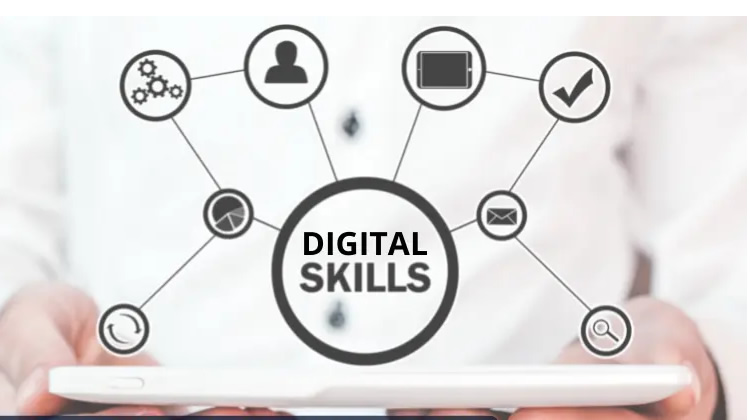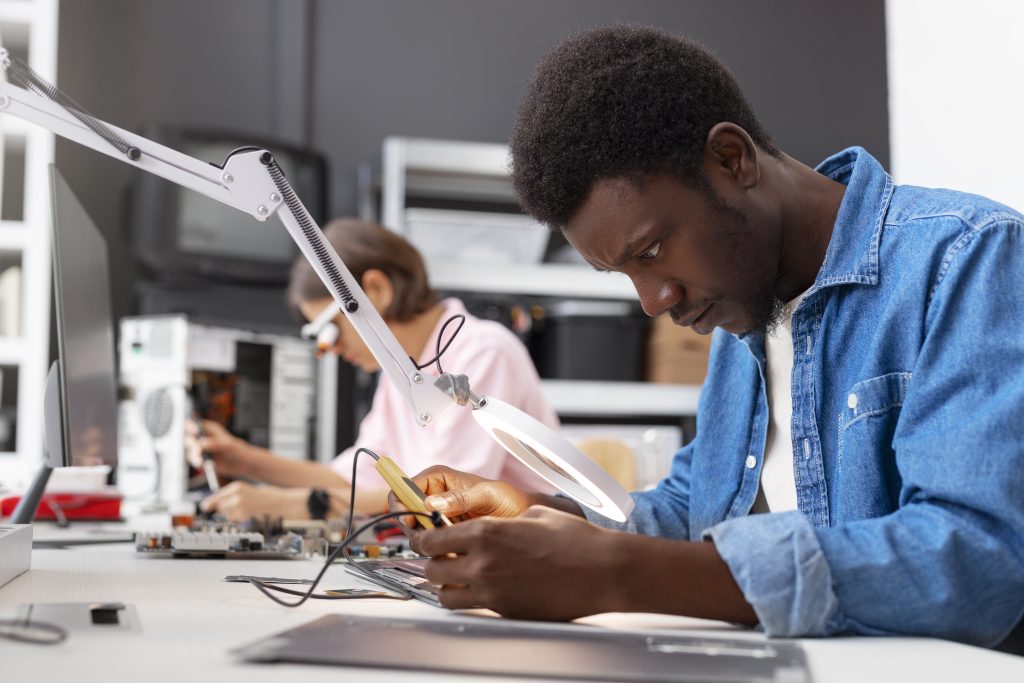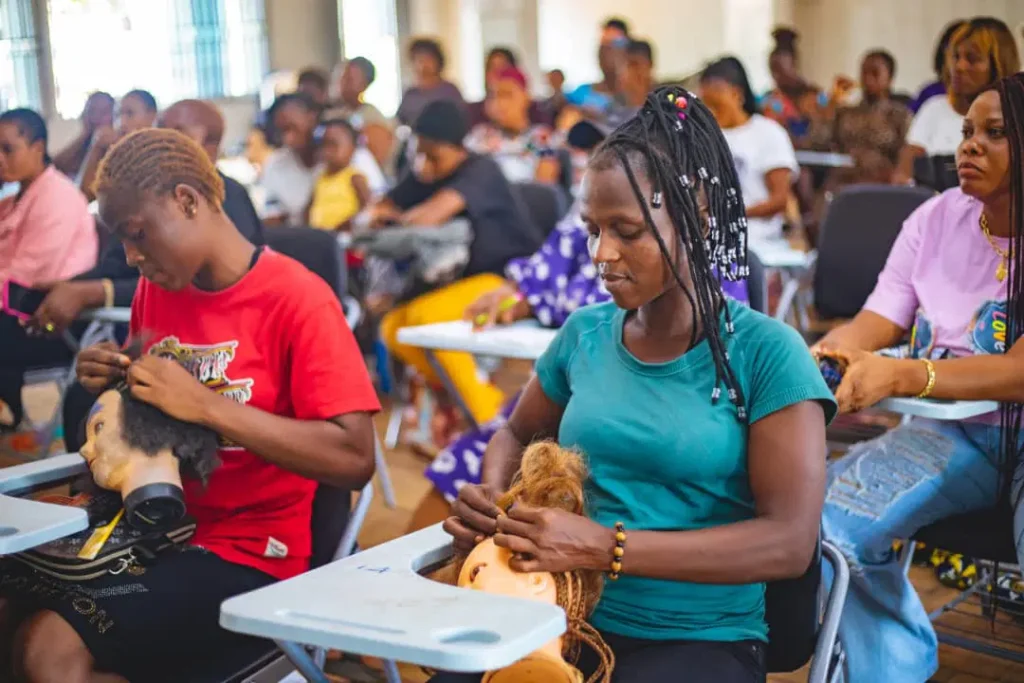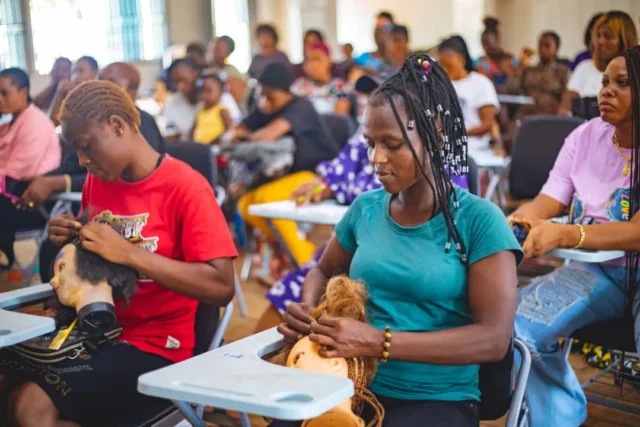In today’s rapidly evolving digital world, one message resonates strongly across Nigerian educational circles: students must learn global skills to thrive. Scholars under the banner of Professors Without Borders recently issued a clarion call, urging Nigerian students to broaden their skill sets significantly—beyond traditional coursework—to remain competitive both at home and internationally.
Table of Contents

Why Global Skills Matter More Than Ever
This call for global skills development for Nigerian students isn’t empty rhetoric—it reflects a profound clash between traditional education models and a future shaped by digital transformations. As sectors like fintech, artificial intelligence, biotechnology, and green energy reshape the global economy, the gap between what students learn and what emerging industries demand widens. Scholars argue that without bridging this divide, Nigeria risks having a workforce unable to match global standards.
Consider the scenario: in cities like Lagos and Abuja, tech hubs are springing up. Young entrepreneurs today are building mobile apps, launching digital startups, and offering remote services—all demanding advanced digital literacy, multilingual communication, cross-cultural understanding, innovation aptitude, and emotional intelligence. Simply put, degrees alone aren’t enough.
Professors Without Borders: A Global Perspective
Professors Without Borders is more than a slogan—it’s a collective of Nigerian and international academics dedicated to modernising Nigeria’s education. They leverage global partnerships, online teaching, mentorship networks, and experiential learning to enhance students’ capabilities.
At a recent forum, founding member Professor Adewale Ajayi summarised the group’s aim: “Our students must not only memorise facts—they must innovate, adapt, and collaborate across borders. That requires exposure to real-world challenges, international perspectives, and teamwork skills beyond national boundaries.”
These advocates propose curriculum reforms. They envision degree programs that integrate virtual internships, global research partnerships, capstone projects with international peers, practical workshops, and courses in emerging digital disciplines. They also recommend soft skills training—like public speaking, intercultural communication, digital project management, and design thinking—ensuring students think like creators, not just consumers.
A Shift from Theory to Action
Understanding that transformation requires more than talk, the scholars paint a roadmap:
- Curriculum Renewal & Accreditation
Integrate modules on data science, cloud computing, global governance, digital ethics, and AI—even in arts and social sciences. Accreditation bodies like the NUC should update frameworks to prioritise future-proof skills. - Hands-On Global Exposure
Forge virtual exchange programs, joint capstone projects with foreign institutions, internships in global companies, and encourage participation in international competitions like hackathons or Model UN. - Industry-Academe Partnerships
Universities should partner with both domestic and international tech firms to provide mentorship, real-world project experiences, and co-designed courses reflecting industry needs. - Faculty Development Programs
Empower lecturers with digital teaching tools, modern pedagogies, and short fellowships abroad to stay current with global education standards. - Soft Skills & Entrepreneurial Training
Embed modules on project management, intercultural leadership, design thinking, persuasive storytelling, financial literacy, and entrepreneurial thinking to complement core discipline knowledge. - Investment in Digital Infrastructure
Encourage strategic government and private investment to supply high-speed internet, access to software tools, and functional multimedia labs—especially at public universities.

Voices from the Field
At the forum, Dr. Ifeoma Chukwuma, a researcher in ICT and education, noted:
“Without digital fluency, Nigerian graduates may only have local relevance—not global impact. We must equip them for borderless collaboration.”
Echoing this, alumnus and AI engineer Ahmed Bello, now working in Kenya’s tech ecosystem, adds:
“My degree got me hired. But global opportunities came when I could code in Python, collaborate across continents, manage virtual teams, and explain complex ideas clearly.”
These experiences illustrate the valuable blend of technical and interpersonal skills. Bello says his employability soared after learning public speaking, data ethics, cross-team communication, agile methods, and international networking.
Responding to Mounting Global Pressures
This academic advocacy responds to multiple strategic pressures:
- Brain Drain & Talent Flight: High-potential graduates frequently seek opportunities abroad. Building local capacities and global readiness encourages them to explore Nigeria’s ecosystem or return home enriched with expertise and connections.
- Digital Transformation: Across Africa, governments are embedding AI, digital finance, agri-tech, and civic tech. Students skilled in these domains can lead this wave.
- Global Job Market: Remote work means Nigerian talent competes globally. Possessing remote-friendly digital collaboration, self-management, and cross-border communication skills is non-negotiable.
- United Nations SDGs Alignment: Global competence—understanding sustainability, inclusivity, and ethics—directly supports UN Sustainable Development Goals, which Nigeria supports.
Challenges to Overcome
However inspiring, this vision faces obstacles:
- Digital Divide: Many campuses still have unstable electricity and poor internet. The infrastructure gap needs urgent investment.
- Teacher Training Gap: Lecturers often lack expertise in digital tools, instructional design, or global collaboration methods.
- Bureaucratic Resistance: Academic institutions are often slow to reform, hindered by red tape and outdated accreditation benchmarks.
- Funding Constraints: Integrating global skills can require investment, both for tech infrastructure and faculty development.
- Regulatory Ecosystem: Industry-academia partnerships and foreign internship programs require regulatory clarity and safety frameworks.
The Way Forward
To transform aspirations into realities, the scholars propose a multi-pronged strategy:
1. Public-Private Consortia
Initiate partnerships with ministries of education, technology firms, NGOs, and global donors to fund pilot programs that deliver digital skills and global placements across faculties.
2. Dedicated Innovation Spaces
Develop “global skills labs” on campuses, equipped for virtual collaboration, project management, and innovation, and even pilot test them as shared spaces among universities.
3. Faculty Exchange Fellowships
Offer teaching staff short-term exchange programs abroad or internships in industry to upgrade their teaching with real-world knowledge.
4. Digital Micro-Credentialing
Offer online badges or certificates in data science, UX design, global communication, or entrepreneurship through Hydra, encouraging lifelong learning alongside degrees.
5. Mentorship Networks
Launch platforms where students connect with professionals worldwide via virtual mentorship, guiding them in remote work, cultural intelligence, and career decisions.
What Government and Stakeholders Must Do
To catalyse change, the scholars call for systemic support:
- Strategic Vision & Policies
Ministries must explicitly prioritise global skills development for Nigerian students, reflected in national education policies, grants, and curriculum standards. - Improved Digital Governance
Ensure consistent power and reputable internet across tertiary campuses, backed by measurable infrastructure goals. - Incentives & Funding
Offer tax breaks, grants, and matched funding for schools and industries that build global skill programs, labs, or internships. - Collaboration Platforms
Facilitate partnerships and networking through events like the Nigeria Global Skills Summit, bringing educators, entrepreneurs, policy-makers, and investors together.
Real Impact Stories
Consider some real-world initiatives:
- Virtual Internships in Kenya & UAE: Several Nigerian universities launched remote internships with Kenya’s fintech hubs and UAE’s AI firms—exposing students to agile development, multicultural teams, and global project cycles.
- Design Thinking Studios: Some campuses now house workshops where students co-create with peers abroad, crafting inclusive healthcare apps and IoT solutions for local challenges.
- Pilot Hybrid Degrees: A university recently trialled a blended Bachelor of Arts combining local core courses with international faculty modules on user-centred design and policy analysis.
These examples show global skill-building in action—and hint at what’s possible at scale with investor and policy support.
Call to Action
As the global economy evolves, so must Nigeria’s education. Here’s what each stakeholder can do:
- Students: Seek out MOOCs, virtual global team projects, foreign language study, and tech meetups to build skills beyond the classroom.
- Universities: Use this momentum to refresh curricula, partner with tech firms, and champion faculty digital development.
- Government: Set a national direction, fund infrastructure, and incentivise global-focused edu innovation.
- Industry: Engage with academia—co-create training, sponsor labs, mentor students, and hire locally with global standards.

Conclusion
Advocates for global skills development for Nigerian students aren’t promoting a trend—they’re laying the foundation for longevity in a digital, networked world. Their vision places the next generation of Nigerian students at the forefront of global innovation, ready to build world-class startups, contribute to international research, influence policy, and compete for digital-age jobs.
By combining domain knowledge, tech prowess, soft skills, and multicultural perspectives, Nigerian graduates won’t just be part of future trends—they will drive them. The question now isn’t if Nigeria will make the leap—it’s when the country commits fully to this transformation.
Join Our Social Media Channels:
WhatsApp: NaijaEyes
Facebook: NaijaEyes
Twitter: NaijaEyes
Instagram: NaijaEyes
TikTok: NaijaEyes
READ THE LATEST EDUCATION NEWS








































